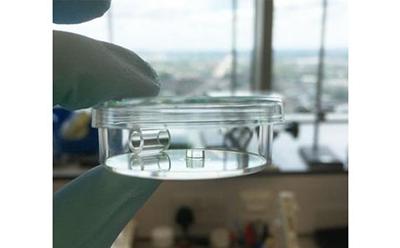Discovery of new role of rare immune cell could prevent invasive surgery for inflammatory bowel disease patients

A team of researchers have played a key part in the discovery of an unexpected tissue reparative role for a rare immune cell type in the gut, that could precipitate fibrosis or cancer if abnormal or impaired.
The team including Dr Nick Evans, Associate Professor of Bioengineering at the University of Southampton, found that type-1 innate lymphoid cells (ILC1) can promote tissue repair but can also contribute to inflammatory bowel disease (IBD) co-morbidities when they accumulate in inflamed tissues.
For patients who are at high risk of developing IBD co-morbidities such as cancer and fibrosis, the discovery could mean avoiding invasive surgery if a new therapeutic is inspired from the research led by King’s College London.
The findings published in Nature Materials may also have implications for COVID-19 patients, as ILC1 cells are also the key first responders to viral infections in the lung and the gut.
Further information on this research is available on our main news story.